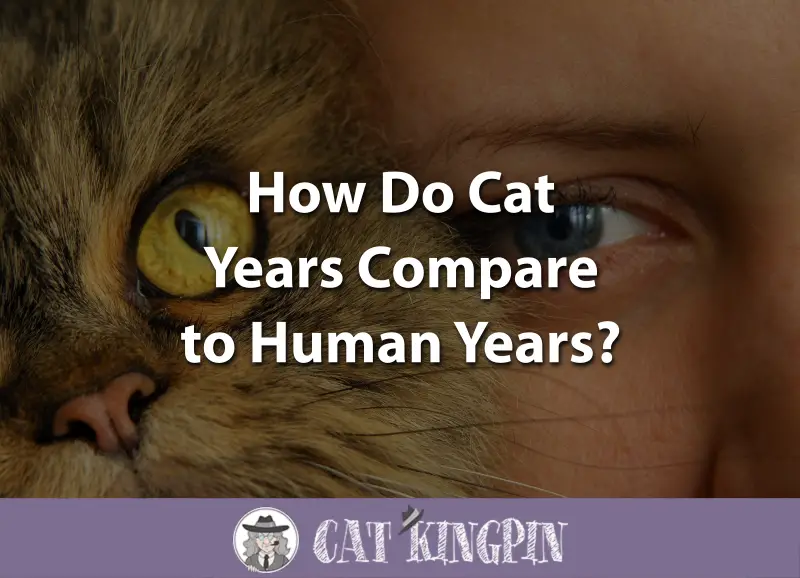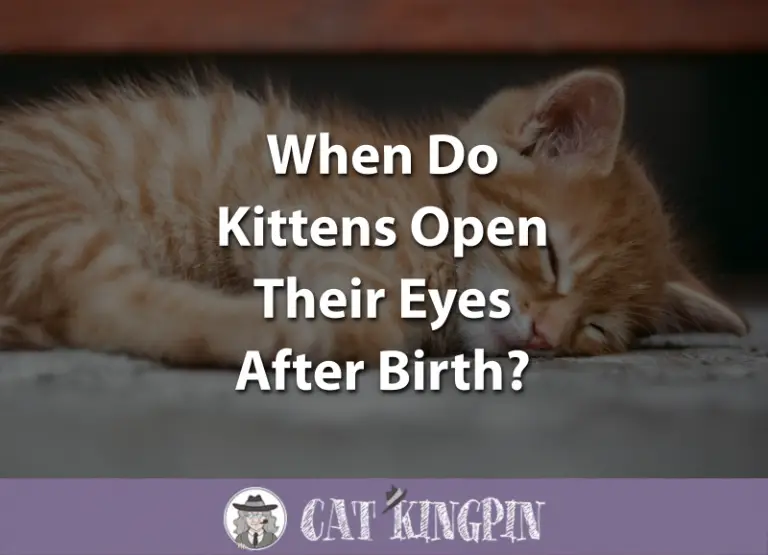How Do Cat Years Compare to Human Years?
Almost everyone has heard that one dog year is equivalent to seven human years. But is that true?
And, what about cats? How do cat years compare to human years?
In this article we’ll cover the following:
- How Are Cat Years Calculated?
- Life Stages of Cats
- How Can You Help Your Cat Live a Long and Healthy Life?
How Are Cat Years Calculated?
The idea that dog years can be compared to human years has been around for quite some time. An inscription from the year 1268 at Westminster Abbey declares one human year is equal to nine dog years.
The simplest explanation for how people came up with such a calculation is that, in the 13th century, an old age for a dog was 10 or 11 years old. Likewise, only a small handful of people from that time lived to be 100 years old, so it made sense to assume that canines aged nine years for each year of human life.
As cats have become increasingly popular companions in our homes, it’s understandable that people have come up with similar calculations for cats. However, the one to seven ratio does not work out, because housecats usually live longer than dogs.
Whereas the average lifespan for dogs across all breeds is 10-13 years, cats enjoy a considerably longer 13-17 years. Given the current human lifespan, that would mean one human year equals approximately 4.5-5 cat years.
However, are such calculations really accurate? While the human-to-cat computation might give you an accurate comparison of ages at some points in the cat’s life, it fails to take into account distinctive stages in the lives of both humans and cats and the two species different rates of development.
Life Stages of Cats
Cats go through six life stages. Characterized by specific growths rates, behaviors, and hormonal changes, each developmental stage is distinct and lasts for a different amount of time.
We humans are not considered physically adults until we reach 20 years old. Cats, however, become full-grown adults around 12 months of age. “Childhood” for cats is less than 10% of their lives compared to the 25% for humans.
The following video shows just how quickly a kitten becomes a full-grown cat:
The American Animal Hospital Association (AAHA) has has developed feline Life Stage Classification guidelines to assist in understanding the cat’s age progression:
- Kitten (birth to 6 months)
- Junior (7 months to 2 years)
- Prime (3 years to 6 years)
- Mature (7 years to 10 years)
- Senior (11 years to 14 years)
- Geriatric (15+ years)
As the AAHA notes, many cats do not fit neatly in the above classification, as some breeds, like the Maine Coon, don’t reach their full potential size until they’re between three to five years old.
How Can You Help Your Cat Live a Long and Healthy Life?
The most important thing you can do for your cat is feed them a high-quality, meat-based cat food such as Wellness or Taste of the Wild. Kittens also need a balanced diet to ensure they get all the nutrients they need to develop into healthy adults.
Eating too much people food or low-nutrient snacks will deprive them of what they really need to grow. Instead, give your kitten a healthy kitten food like Blue Wilderness kitten food, which has everything your kitten needs, without the empty calories that can make them fat.
Regular vet visits are also a must. Your vet can tell you that neutering and keeping them indoors contributes to a much longer average lifespan for cats.
As with people, exercise is essential. If you want to go all out on keeping your indoor cat in tip-top, peak physical shape, try the Cat Garden Complex Activity Center.
If you follow the above tips, your cat might even live as long as Rubble, in the video below:
By the way, the Guinness World Records lists the longest lived cat ever as Creme Puff, who died at the age of 38 years and 3 days. May all cat owners be so lucky.
So, how do cat years compare to human years?
Much like humans, cats go through various life stages. Overall, one human year is equal to about 4.5 cat years.
However, humans spend a considerable longer percentage of their lives in childhood than cats.
You can do a lot to help your cat live a long and healthy life and get the most out of their cat years. A high quality diet and regular vet visits will give your indoor cat a shot a becoming the next Guinness World Record holder!
What did you think of this post? If you have any questions or would like to share a story about how your cat has changed as it aged, please tell us in the comments below! We’d love to hear from you.






